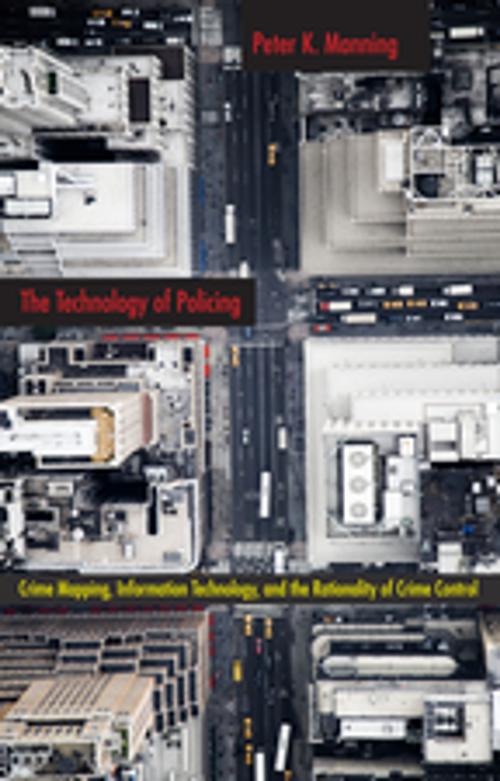The Technology of Policing
Crime Mapping, Information Technology, and the Rationality of Crime Control
Nonfiction, Social & Cultural Studies, Social Science, Crimes & Criminals, Criminology, Sociology| Author: | Peter K. Manning | ISBN: | 9780814795767 |
| Publisher: | NYU Press | Publication: | March 1, 2008 |
| Imprint: | NYU Press | Language: | English |
| Author: | Peter K. Manning |
| ISBN: | 9780814795767 |
| Publisher: | NYU Press |
| Publication: | March 1, 2008 |
| Imprint: | NYU Press |
| Language: | English |
With the rise of surveillance technology in the last decade, police departments now have an array of sophisticated tools for tracking, monitoring, even predicting crime patterns. In particular crime mapping, a technique used by the police to monitor crime by the neighborhoods in their geographic regions, has become a regular and relied-upon feature of policing. Many claim that these technological developments played a role in the crime drop of the 1990s, and yet no study of these techniques and their relationship to everyday police work has been made available.
Noted scholar Peter K. Manning spent six years observing three American police departments and two British constabularies in order to determine what effects these kinds of analytic tools have had on modern police management and practices. While modern technology allows the police to combat crime in sophisticated, detail-oriented ways, Manning discovers that police strategies and tactics have not been altogether transformed as perhaps would be expected. In The Technology of Policing, Manning untangles the varying kinds of complex crime-control rhetoric that underlie much of today’s police department discussion and management, and provides valuable insight into which are the most effective-and which may be harmful—in successfully tracking criminal behavior.
The Technology of Policing offers a new understanding of the changing world of police departments and information technology’s significant and undeniable influence on crime management.
With the rise of surveillance technology in the last decade, police departments now have an array of sophisticated tools for tracking, monitoring, even predicting crime patterns. In particular crime mapping, a technique used by the police to monitor crime by the neighborhoods in their geographic regions, has become a regular and relied-upon feature of policing. Many claim that these technological developments played a role in the crime drop of the 1990s, and yet no study of these techniques and their relationship to everyday police work has been made available.
Noted scholar Peter K. Manning spent six years observing three American police departments and two British constabularies in order to determine what effects these kinds of analytic tools have had on modern police management and practices. While modern technology allows the police to combat crime in sophisticated, detail-oriented ways, Manning discovers that police strategies and tactics have not been altogether transformed as perhaps would be expected. In The Technology of Policing, Manning untangles the varying kinds of complex crime-control rhetoric that underlie much of today’s police department discussion and management, and provides valuable insight into which are the most effective-and which may be harmful—in successfully tracking criminal behavior.
The Technology of Policing offers a new understanding of the changing world of police departments and information technology’s significant and undeniable influence on crime management.















